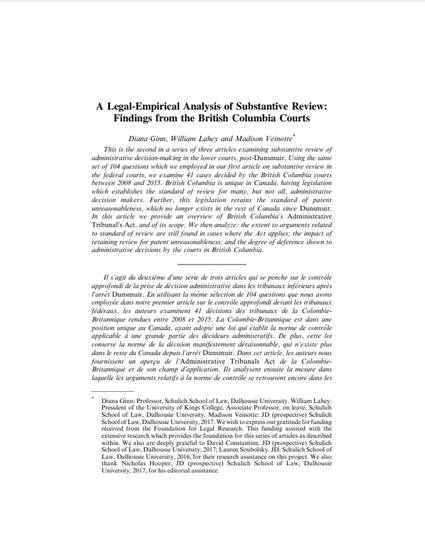
- Administrative Decision Making,
- Substantive Review,
- Dunsmuir,
- British Columbia Courts
This is the second in a series of three articles examining substantive review of administrative decision-making in the lower courts, post-Dunsmuir. Using the same set of 104 questions which we employed in our first article on substantive review in the federal courts, we examine 41 cases decided by the British Columbia courts between 2008 and 2015. British Columbia is unique in Canada, having legislation which establishes the standard of review for many, but not all, administrative decision makers. Further, this legislation retains the standard of patent unreasonableness, which no longer exists in the rest of Canada since Dunsmuir. In this article we provide an overview of British Columbia’s Administrative Tribunal’s Act, and of its scope. We then analyze: the extent to arguments related to standard of review are still found in cases where the Act applies; the impact of retaining review for patent unreasonableness; and the degree of deference shown to administrative decisions by the courts in British Columbia.
